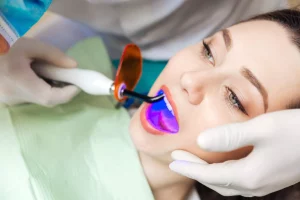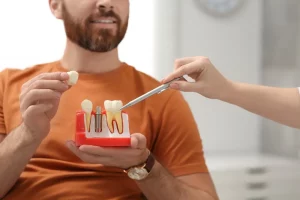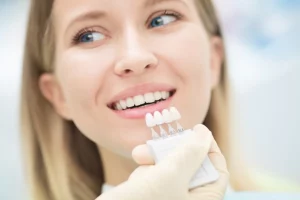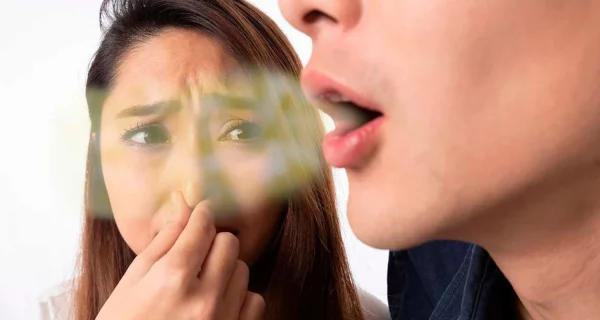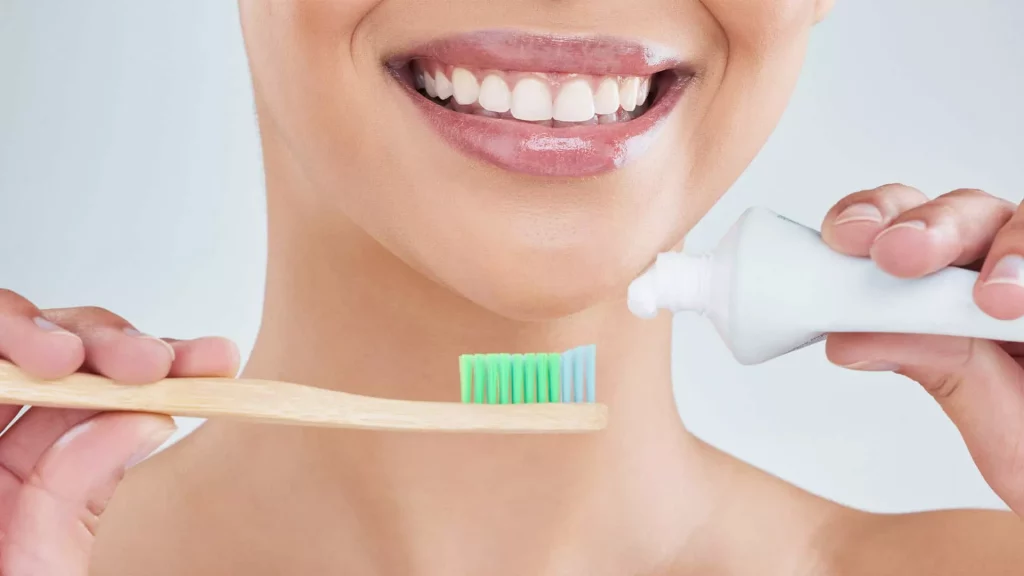Last Updated on: 30th October 2025, 08:51 am
Children who grind their teeth may experience a condition known as childhood bruxism. Parents should take them to a dentist if the grinding is frequent, teeth look worn down, or the child has jaw pain, headaches, or trouble sleeping. Early dental visits prevent long-term damage and protect smiles.
We often hear about teeth grinding, or bruxism, in adults. But what about children who grind their teeth?
This is a very common concern for parents. They may be watching their baby sleep peacefully when suddenly a loud, uncomfortable sound makes them worry. Is it normal? Should they be concerned?
In this article, we will explore when toddlers grinding teeth may be part of normal growth and when it may signal childhood bruxism. We will also explain what parents can do to protect their child’s smile.
Table of Contents
ToggleWhat is bruxism in children?

Bruxism is the habit of clenching or grinding teeth without realizing it. Many people think it only happens to adults under stress, but children also experience it. In fact, studies show that up to 20% of kids worldwide may grind their teeth at some point.
Bruxism often happens at night, but some children do it during the day. It can wear down tooth enamel, make teeth more sensitive, and even cause jaw pain. For small kids, this condition can also interrupt sleep, affecting mood and growth.
Of note, bruxism in children can be occasional or constant.
What is the difference between occasional tooth grinding and ongoing childhood bruxism?
Not all grinding is the same.
- Occasional tooth grinding happens when toddlers are teething or exploring how their teeth fit together. It usually stops on its own.
- Ongoing childhood bruxism, however, is different. It happens many nights in a row, may cause tooth wear, and can lead to jaw pain or sleep problems.
When grinding is regular and damaging, a dental checkup is needed.
Why do toddlers grind their teeth?
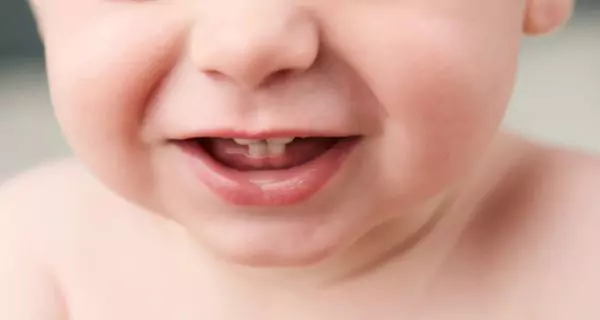
The causes are multifactorial, which means that several factors may be involved. These can change depending on the child’s age and development.
When is teeth grinding normal in toddlers?
- Teething discomfort: Grinding can help relieve pressure when new teeth come in.
- Exploring the bite: Toddlers may grind simply to test how their teeth fit together.
In these cases, grinding is usually temporary and stops as the child grows.
What factors can make teeth grinding a problem?
- Physical causes: sleep apnea, allergies, reflux, or misaligned teeth.
- Emotional causes: stress, anxiety, or trouble sleeping.
- Lifestyle habits: too much screen time, irregular sleep, or high sugar intake.
- Genetics: children with parents who had bruxism are more likely to grind.
When these factors are present, grinding may last longer, damage teeth, or affect sleep quality. That is when parents should consider a dental visit.
What are the signs that a child is grinding their teeth?
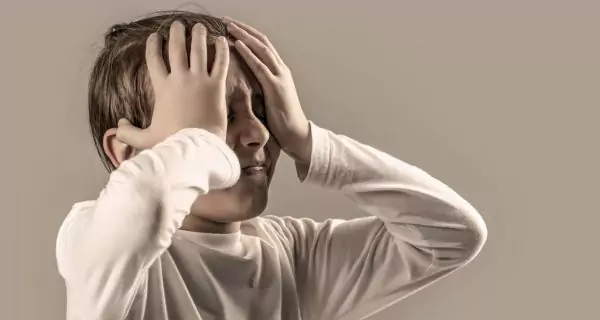
Many parents first notice a strange squeaking or crunching sound at night. But there are other signs as well:
- grinding noise while sleeping
- clenching of the jaw during the day or night
- morning headaches or earaches
- flattened or chipped teeth
- tooth sensitivity to hot or cold drinks
- complaints of jaw pain or difficulty chewing
Since some children grind silently, dentists often detect early damage during checkups.
Is it normal for babies and toddlers to grind their teeth?
It is common to see teeth grinding in very young children, especially during the teething stage; parents wonder if it is safe or not. Let’s look at different ages:
Why does a baby 6–12 months grind their teeth?
A 15-month-old grinding teeth may simply be reacting to new teeth coming in.
- Babies often grind because they feel strange textures in their mouths.
- The action usually stops as they get used to chewing.
If grinding continues daily, parents should watch for chipped or worn baby teeth.
Why does a 15–18-month-old grind their teeth?
At 18 months, grinding may also be linked to teething or new molars breaking through. Sometimes it is just a phase.
However, if the child seems uncomfortable, has trouble sleeping, or grinds loudly every night, it could signal early childhood bruxism.
Why does a 3-year-old (or older) grind their teeth?
For a 3-year-old grinding teeth while sleeping, the cause may be stress, airway problems, or even a habit. By this age, teething discomfort should be less intense, so ongoing grinding is more concerning.
If you hear loud grinding or see tooth wear, it is best to book a pediatric dental appointment.
Teeth grinding can happen at different ages for different reasons. Babies may grind when teeth first appear, toddlers often grind with new molars, and older children tend to grind from stress or health issues. Paying attention to the timing and signs helps parents know when to seek dental advice.
What complications can childhood bruxism cause?
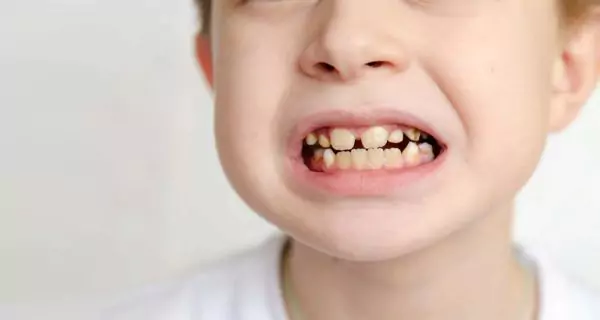
Untreated tooth grinding may seem harmless, but over time, it can create several problems:
- Enamel loss: teeth become more sensitive and prone to cavities.
- Cracks or fractures: permanent damage may require dental repair.
- Jaw pain or TMJ disorder: discomfort when chewing or speaking.
- Sleep issues: poor rest can affect learning, growth, and mood.
- Changes in facial growth: in severe cases, long-term grinding may affect jaw development.
What are the best treatments for children who grind their teeth?
The treatment will depend on the cause. Let’s see some examples.
How can stress management help?

- Relaxing bedtime routines reduce stress.
- Options include soft music, bedtime stories, gentle stretching, or breathing exercises.
When are dental appliances recommended?
- Dentists may suggest a soft night guard if tooth damage is visible or grinding continues for months.
- These protect permanent teeth from wear.
- They are usually avoided for very young toddlers but may be used for older children.
Why treat underlying medical issues?
- Health problems like allergies, reflux, or sleep apnea can cause grinding.
- Treating these conditions often reduces grinding episodes.
- A pediatrician or sleep specialist may work together with the dentist.
What about lifestyle changes?
Parents can support better sleep and reduce grinding by:
- setting a consistent bedtime and wake-up time.
- limiting sugar and caffeine, especially in the evening.
- reducing screen time before bed.
- encouraging quiet evening activities instead of exciting games.
Helping children who grind their teeth often requires small changes at home and, in some cases, professional care.
Relaxation, healthy routines, and medical treatment when needed can protect their teeth, improve sleep, and support overall well-being.
When should parents take a child to the dentist?

You should schedule a dental visit if:
- grinding happens most nights.
- teeth look flat, chipped, or worn.
- the child complains of pain in the jaw, head, or ears.
- there is trouble chewing or new tooth sensitivity.
A pediatric dentist will check the bite, look for enamel loss, and recommend the next steps for treatment along with tips at home. Early care helps to protect baby and permanent teeth.
How can Channel Islands Family Dental help children who grind their teeth?
At Channel Islands Family Dental Office, our pediatric team is trained to recognize the signs of childhood bruxism. We provide:
- gentle exams to check enamel and jaw health
- custom night guards when needed
- guidance on healthy sleep routines and stress management
- collaboration with medical doctors if health issues are involved
We proudly serve families in Oxnard, Ventura, Santa Paula, Newbury Park, and Port Hueneme. Our goal is to protect your child’s teeth today so they can enjoy a lifetime of healthy smiles.
Frequently Asked Questions (FAQ)
Multiple factors can lead children to grind their teeth. Some reasons include poor dental alignment, physical suffering such as earaches or discomfort associated with the emergence of new teeth, as well as emotional factors such as stress due to an upcoming test or changes in your daily routine.
In both adults and children, teeth grinding can occur during sleep without the person being fully aware of it. Although bruxism is not inherently harmful, the continued act of grinding or clenching the teeth can lead to jaw discomfort and long-term dental deterioration.
Voice Search Snippets (Q&A)
References
1. Alvarez, G. V. A., Baldeón, L. M. C., & Malpartida, C. V. (2019). Bruxism in Children and Adolescents: A Review of the Literature. Odovtos – International Journal of Dental Sciences, 97–104. https://doi.org/10.15517/ijds.v0i0.36185
2. Cleveland Clinic. (2025, August 18). Bruxism (Teeth grinding). https://my.clevelandclinic.org/health/diseases/10955-teeth-grinding-bruxism
3. Lal, S. J., Sankari, A., & Weber, K. K., DDS. (2024, May 1). Bruxism Management. StatPearls – NCBI Bookshelf. https://www.ncbi.nlm.nih.gov/books/NBK482466/
4. Mayo Clinic. (2024, December 27). Teeth grinding (bruxism) – Symptoms and causes. https://www.mayoclinic.org/diseases-conditions/bruxism/symptoms-causes/syc-20356095
5. Pacheco, D. (2023, November 16). Teeth grinding in children. Sleep Foundation. https://www.sleepfoundation.org/bruxism/teeth-grinding-children







